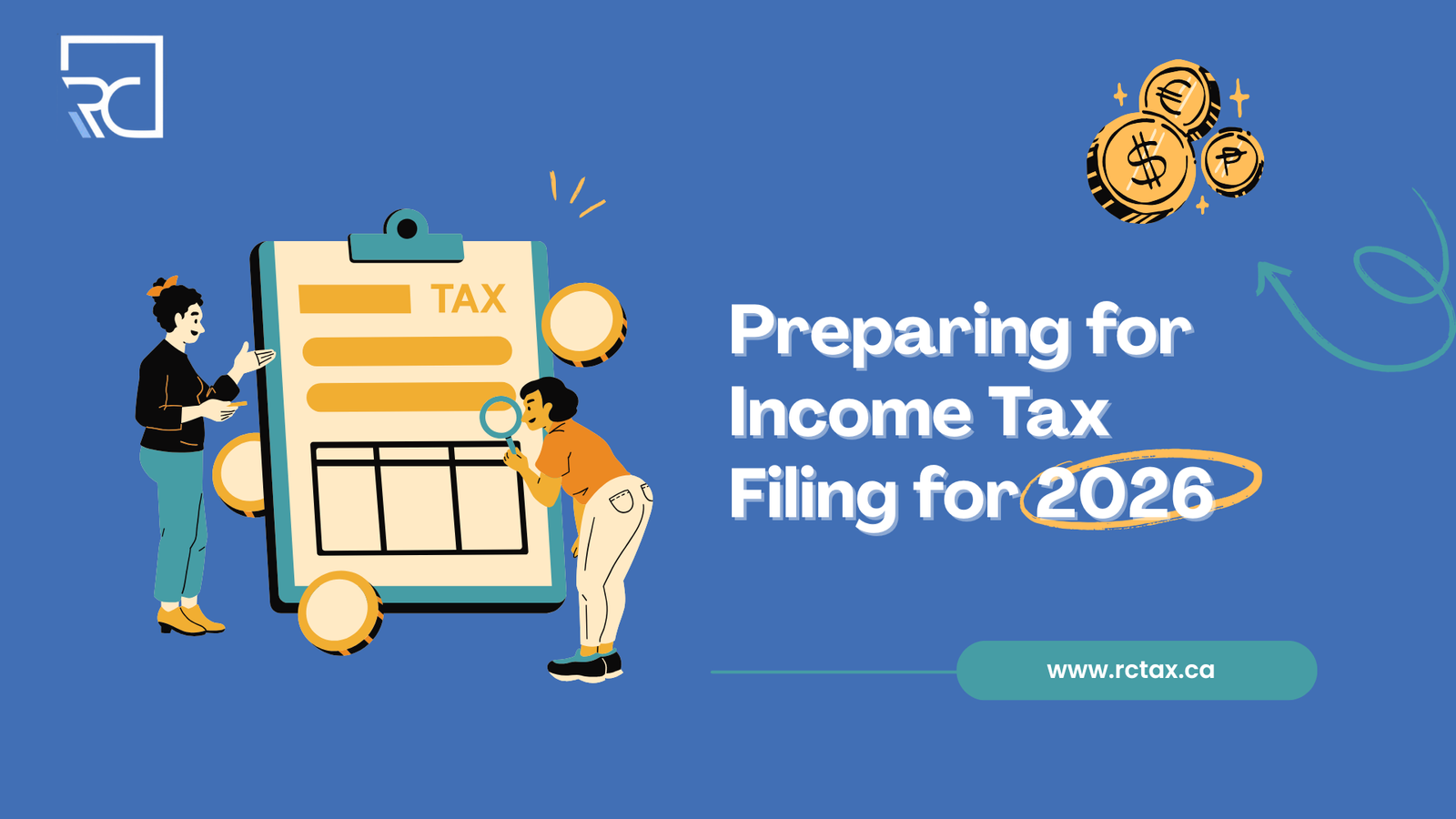Tax Tips for Canadian Real Estate Investors
Real estate investing in Canada can be one of the most rewarding wealth-building strategies — but if you don’t understand the real estate tax rules, you could end up paying more to the Canada Revenue Agency (CRA) than necessary.
From knowing which expenses you can deduct to understanding new Canada GST benefits in 2025, the right tax strategies can save you thousands. At Ricky Chawla CPA Professional Corporation, we help property investors navigate the complex tax landscape so they can focus on growing their portfolio, not stressing about tax compliance.
Understanding Real Estate Tax in Canada
The term real estate tax in Canada covers several types of taxation related to owning, buying, selling, or renting out property. This includes:
Property taxes levied by municipalities.
Capital gains tax when you sell an investment property for a profit.
Rental income tax on earnings from tenants.
GST/HST implications for certain property transactions.
It’s important to note that the tax treatment of real estate investments differs based on whether you hold the property personally or through a corporation. The right structure can influence how much you pay and how you file your tax returns.
Common Tax Deductions for Real Estate Investors
The CRA allows investors to claim certain expenses to reduce taxable income. Here are some key deductions:
a) Mortgage Interest
You can deduct the interest paid on loans used to purchase or improve your investment property.
b) Property Taxes
Municipal property taxes are deductible against rental income.
c) Repairs and Maintenance
Costs for repairs that keep the property in its original condition (painting, fixing leaks, replacing broken fixtures) are fully deductible in the year they’re incurred.
d) Depreciation (Capital Cost Allowance)
You can claim depreciation on buildings (but not land) to spread the cost over several years.
e) Professional Services
Fees paid to accountants, lawyers, or property managers are deductible, making professional guidance even more valuable.
Claiming these correctly during tax returns filing can significantly reduce your overall tax bill.
Canada GST Benefits 2025 for Real Estate
As of 2025, there are notable Canada GST benefits that real estate investors should know:
New Housing Rebate: If you build or substantially renovate a home, you may qualify for a partial GST/HST rebate.
Rental Property Rebates: GST/HST paid on new residential rental properties may be partially recoverable.
Affordable Housing Incentives: Some provinces are offering enhanced GST/HST relief for developers and landlords who provide affordable housing.
These Canada GST benefits in 2025 can create substantial savings, but eligibility rules are strict. A CPA can help determine whether you qualify and handle the rebate application process.
Filing Your Tax Returns as a Real Estate Investor
Proper tax returns filing is essential for avoiding CRA penalties and maximizing deductions. Here’s what to keep in mind:
Choose the Right Filing Method: Investors can file under personal income or corporate returns. The choice affects your tax rate and allowable deductions.
Prepare Documentation: Keep detailed records of rental income, expenses, mortgage statements, and improvement receipts.
Track GST/HST: If your real estate activities require GST/HST collection, report it accurately to avoid audits.
Avoid Common Mistakes: Misclassifying repairs as capital improvements, forgetting to report rental income, or missing GST rebate deadlines can be costly.
Strategies to Minimize Taxes on Real Estate Income
Smart planning can reduce your real estate tax liability. Here are a few proven strategies:
a) Income Splitting
Transfer a portion of rental income to a spouse in a lower tax bracket.
b) Deferring Capital Gains
Consider holding onto the property until a tax year when your income is lower, reducing the effective tax rate.
c) Leveraging RRSPs & TFSAs
While you can’t directly hold real estate in a TFSA, you can use these accounts to invest in REITs or save tax-free for future property purchases.
d) Incorporation Benefits
Owning real estate through a corporation may reduce tax rates and protect assets — but it’s not right for everyone.
Special Considerations for Foreign Real Estate Investors in Canada
Foreign investors face unique real estate tax obligations:
Non-Resident Withholding Tax: 25% on gross rental income unless a special election is filed.
NR4 Slip Filing: Required annually for reporting Canadian rental income.
Capital Gains on Sale: Subject to withholding unless a Certificate of Compliance is obtained from the CRA.
GST/HST rebates may still apply for qualifying new property purchases, even for non-residents.
Working with a CPA for Real Estate Tax Success
Managing real estate tax obligations while taking advantage of all possible deductions and Canada GST benefits in 2025 can be overwhelming.
A real estate-focused CPA, like Ricky Chawla CPA Professional Corporation, can:
Develop a tailored tax strategy for your portfolio.
Ensure accurate and timely tax returns filing.
Identify deductions and rebates you might miss on your own.
Keep you updated on new tax laws affecting property owners.
Conclusion
Real estate investing in Canada offers incredible opportunities — but without the right tax strategy, you could lose a significant portion of your profits to taxes.
By understanding the nuances of real estate tax, maximizing deductions, leveraging Canada GST benefits in 2025, and filing accurate tax returns, you can keep more of your investment income.
For expert advice and personalized tax planning, contact Ricky Chawla CPA Professional Corporation today. Let us help you make your real estate investments more profitable.






